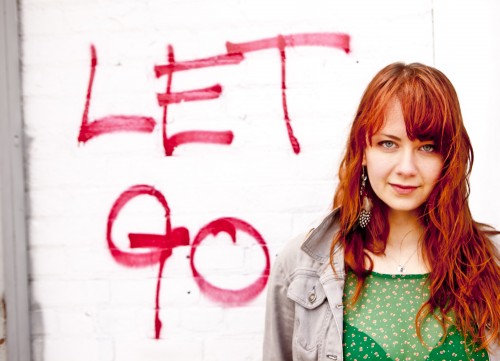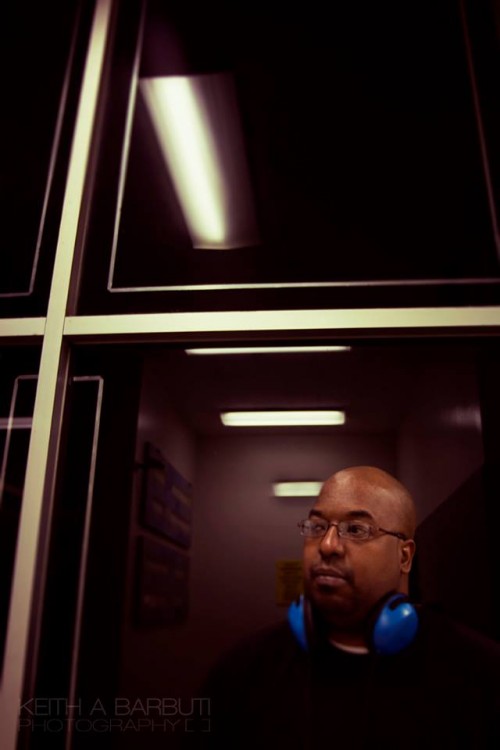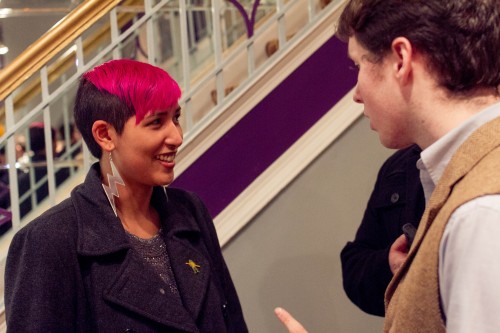By Michael Lello
While Natalie Cressman’s instrument of choice is the trombone, one might say the paintbrush – at least figuratively – is also a key tool in the arsenal of the young multi-instrumentalist, singer and songwriter.
“Joni Mitchell, for me, she’s one of my all-time favorite musicians ever, but even more than her music her lyrics are breathtaking,” Cressman says. “Another thing I like about her records is she paints imagery with sound, and the music matches the mood almost literally.”
It’s a technique Cressman, 21, drew upon for her sophomore album, “Turn The Sea,” which finds the musician, known for her membership in the Trey Anastasio Band, aka TAB, taking center stage.
“For the title track, I wanted to come up with some musical imagery of waves crashing, and I think Joni and her sideman like Wayne Shorter were word painting with the music that we’re making.”
 The record, released earlier this month, has already garnered some strong reviews, including one from All About Jazz, which notes the “melding of her pop and jazz experience” and declares that “Cressman continues to arrive and is sure to continue her brilliant evolution as a musician.”
The record, released earlier this month, has already garnered some strong reviews, including one from All About Jazz, which notes the “melding of her pop and jazz experience” and declares that “Cressman continues to arrive and is sure to continue her brilliant evolution as a musician.”
Cressman, who grew up the daughter of jazz musicians in San Francisco, has found many unique canvases on which to work, from the large festivals TAB headlines – including Peach Festival in Scranton this August – to more close quarters, like the River Street Jazz Café, where she’ll play Wednesday, March 26.
As she spent a day off in her Brooklyn home, we chatted yesterday with Cressman about the challenge of shifting from sideman to bandleader, her writing process and the eye-opening experience of playing with Anastasio.
H81R: Why did you decide this was the right time to make a solo album?
NC: I had just graduated college, and it was kind of a chance to follow through on my own vision of what my own band could be. It’s tough to fit that in with school and day jobs as a sideman. I had the time to actually follow through and go on out and make something happen.
H81R: Was there a learning curve?
NC: It kind of came natural to me. I’ve been writing a lot of music the last four or five years. To have the freedom to shape it and call the shots myself was something I was more excited by than intimidated.
H81R: What’s your writing process like? Do you write on the trombone?
NC: I rarely write on the trombone. Occasionally I will, but it will be like coming up with something specific. For this album I wrote on piano, and on a couple little bits I used bass or guitar. I don’t really have a formulaic way of writing songs. Sometimes there’s a groove or a vamp that becomes a song. There’s really no one way to do it.
H81R: I don’t want to use the term “dumbing down,” but is there a challenge in taking what you’ve learned as an academically trained musician and actually writing music that will appeal to the average listener?
NC: Yeah. That’s exactly what I’m kind of going through with this project, and it’s not as much as dumbing it down but the challenge of writing of where the sophistication is tucked in. I think it’s great. I don’t think it’s a bad thing to meet the audience halfway. In the back of my mind I was thinking about not limiting the audience to people who love jazz, just having songs that could be almost relatable to anyone, and that’s a skill in itself.
 H81R: How did you initially get hooked up with Trey?
H81R: How did you initially get hooked up with Trey?
NC: That was a situation where I kind of got recommended by my father. Trey had used him on a tour in 2005, and they were looking for a female who could sing and play. And my dad also has a touring gig with Carlos Santana, and he wasn’t available. The last thing he said after he recommended me was “and she happens to be my daughter, and she’s 18.” And luckily for me, that didn’t deter them, and they reached out to me.
I got the spot for good by sitting in with (TAB member) Jennifer Hartswick, and she informally auditioned me on a song I never heard before and it worked out.
H81R: Were you familiar with his or Phish’s music?
NC: Not really at all, to be honest. I knew of them and I saw the Trey show that my dad played at The Warfield in San Francisco when I was 14 or something, but I hadn’t really experience the community of Phish fans. So it was totally a shock how fanatic – and not in a negative way – but they kind of have a very fanatic fanbase.
H81R: I interviewed Trey a few times, and he struck me as a very energetic, positive guy. What’s it been like working with him?
NC: He’s kind of a dream bandleader, and you’re so right about him and having so much positive energy, and his drive to create music is really inspiring. I think also his broad taste in music has also been really encouraging, because at various stages of my upbringing and even in my career, I felt a little pressure to specialize, and Trey is just such a great example of someone that doesn’t do that, and it’s moving to see someone up there owning that. To be exposed to that success kind of reaffirms how I approach music.
H81R: How has playing with Trey helped you grow your audience for your solo work?
NC: Well, I think he has really helped me grow an audience for my solo work, he really gives every musician in TAB the chance to shine during the course of an evening. It’s not like another high-profile gig, where you never get announced. It’s kind of very inclusive, and that’s not always the case. It’s resulted in some of the people from the Phish and Trey audience coining across to see me, which is great.
H81R: You’ll be here in Scranton to play at Peach Festival with Trey in August I assume?
NC: That’s right. I’m looking forward to that.
H81R: How do you approach a big show with TAB, in front of tens of thousands of people, as opposed to the type of place you’ll be playing here in Wilkes-Barre, which is a club?
NC: Yeah, it’s funny because it’s easy to go on a Trey show, and there will be people there, and for me it’s very different with my own band. Every single RSVP is so precious to me at this point. We usually don’t even draw 300 people at this point; it’s our first tour. I’m not saying there won’t be a great crowd Wednesday night, but whoever is there, I make a point to get to know them and thank them, and those people are the ones that help get the word out.
Meanwhile, when you’re on stage for 20,000 people, it’s almost otherworldly, it’s hard to even feel it’s reality. And there’s no way you can see every face. The great thing about these small rooms is I get face time with these people and I actually enjoy the process of growing an audience, and I’m not easily deterred by a light room.




Loved her appreciation for her fans and her explanation of a surreal Trey show vs the small crowd. Facetime with the audience is very cool for an artist.